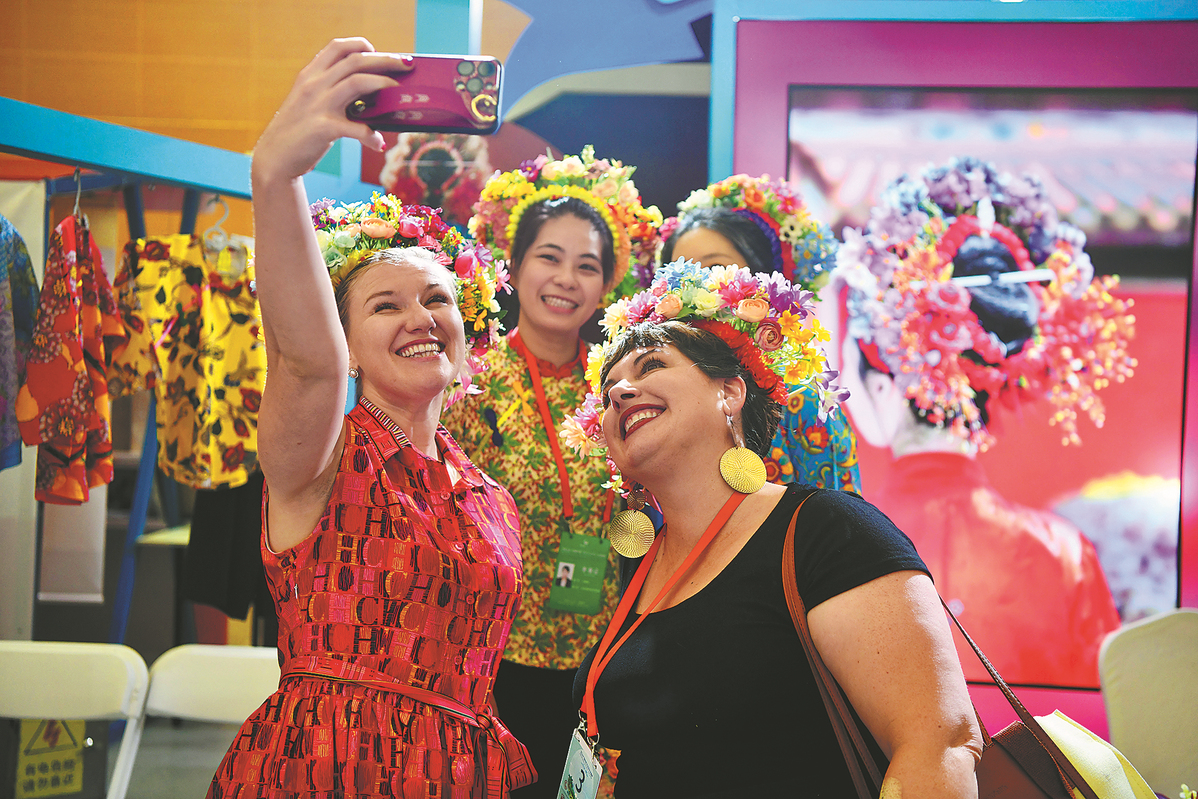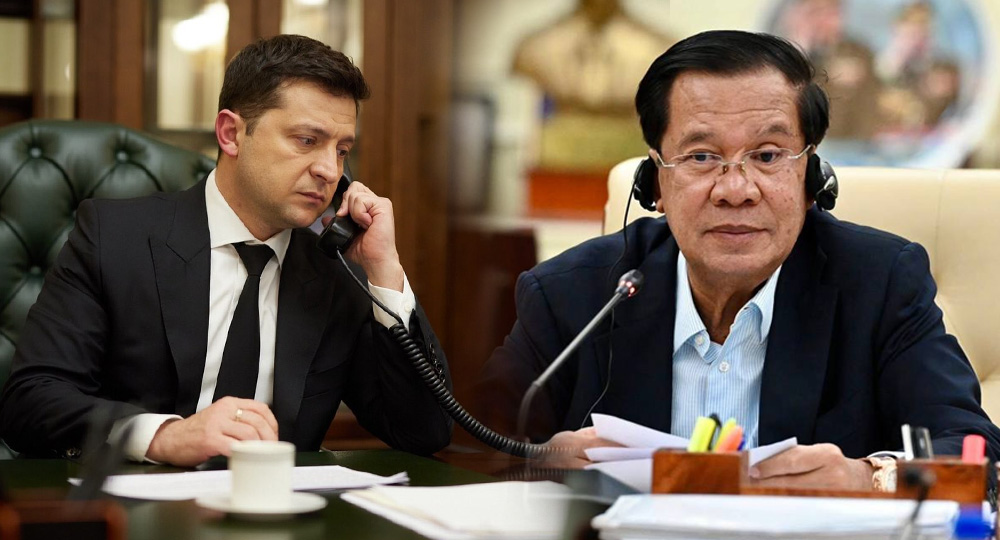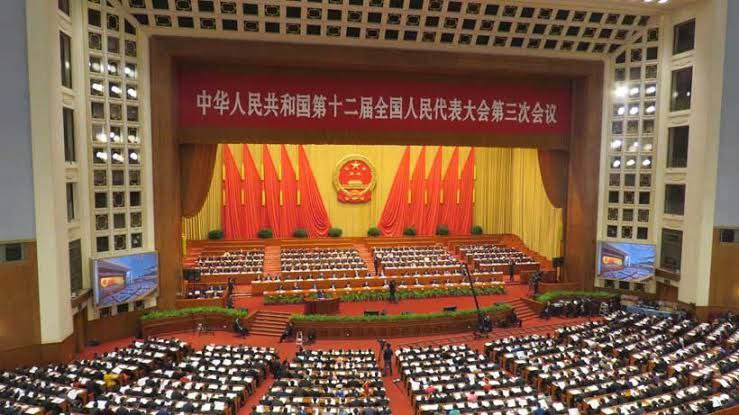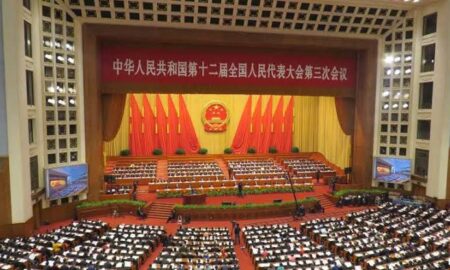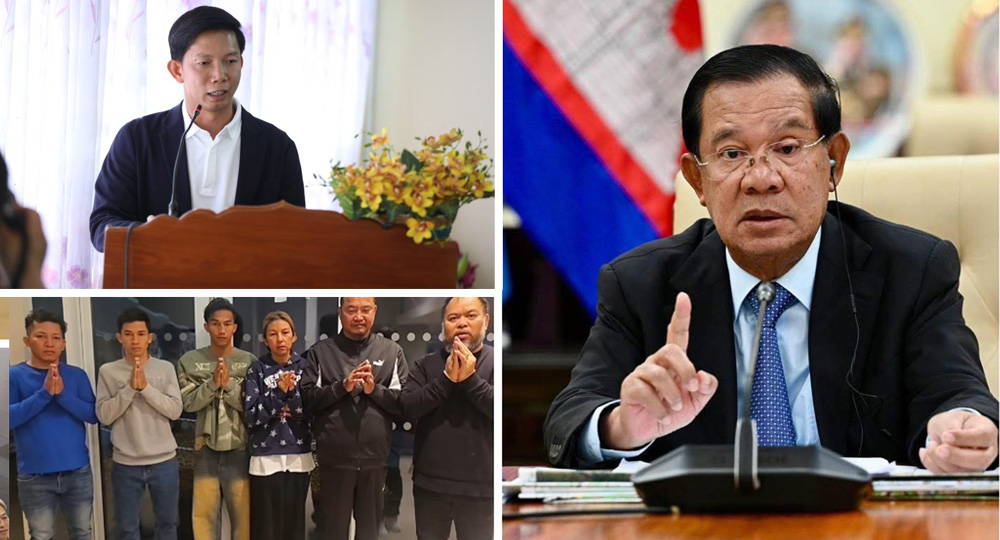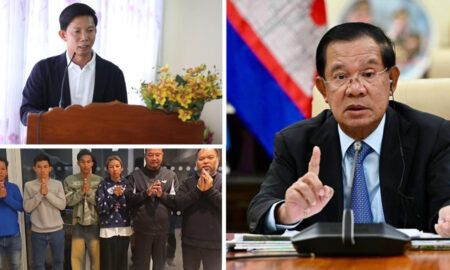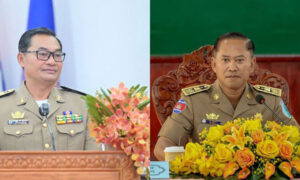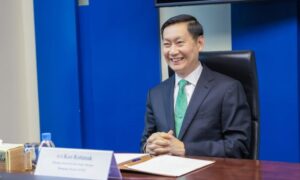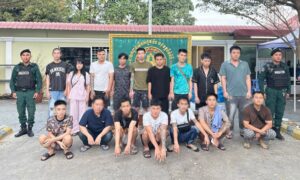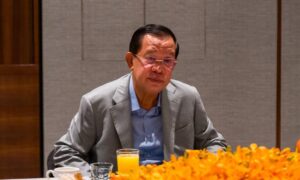Exchange event hosted in Fuzhou builds connections, understanding between two countries
Participants show their rubbing artworks during the “Bond with Kuliang: 2024 China-US Youth Festival” in Fuzhou, Fujian province, on June 26. QIN LANG/XINHUA
Kuliang is not only a famous summer retreat on the hilly outskirts of Fuzhou, but also a longtime haven for friendly exchanges between Chinese and US people.
In the 1880s, foreign expats including doctors and engineers from France, the United Kingdom and the United States who resided in or near Fuzhou, the capital of East China’s Fujian province, built holiday villas in Kuliang, and lived in harmony with local villagers for decades.
Last month, Kuliang and Fuzhou hosted the Bond with Kuliang: 2024 China-US Youth Festival — the largest youth exchange event between the two nations since diplomatic relations were established in 1979.
More than 200 young people from the US attended the five-day festival, together with over 300 Chinese youths.
In a congratulatory message sent to the opening of the festival on June 24, President Xi Jinping said that young people are energetic and full of dreams, and “the future of China-US relations lies in young people”.
“If there is anything that I’ve seen so far throughout this trip, it’s that although we may have different cultures, there are things that we share,” said Zev Curiel-Friedman, a festival participant and a member of the communication staff at the University of California, Davis.
Curiel-Friedman’s enthusiasm for interaction led him to participate in a friendly three-on-three half-court basketball match. “I’ve played basketball my whole life,” he said.
The match stood out as a highlight of the dozens of activities held during the festival, such as roundtable discussions, bazaars, documentary screenings, art salons and concerts.
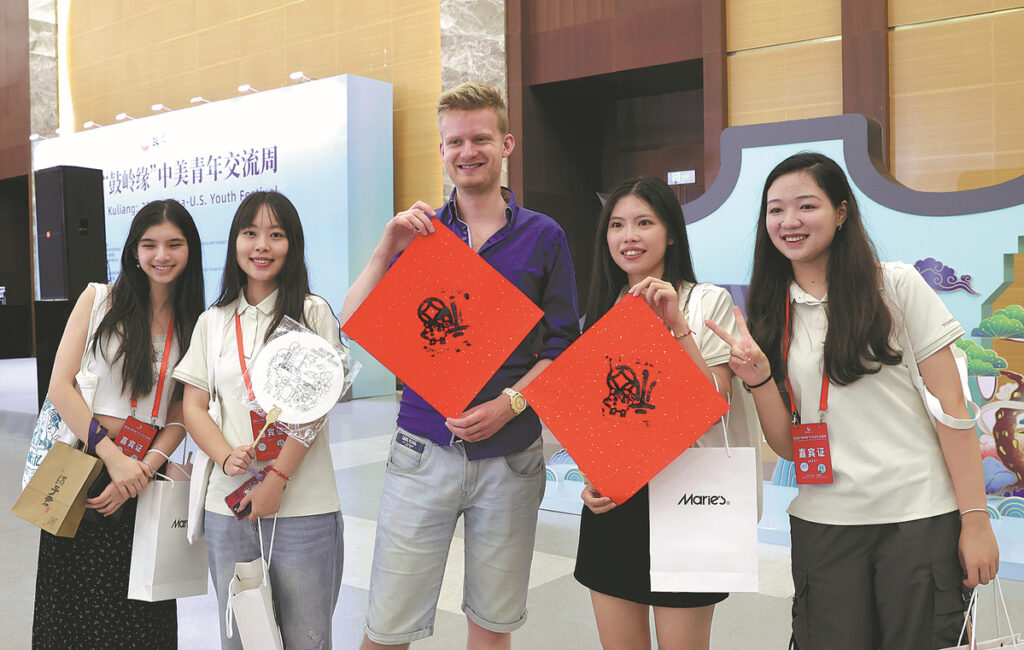
Buckets of fun
Thanks to the basketball connection, Curiel-Friedman made a great Chinese pal in Han Zheng, a 26-year-old office clerk from Fuzhou and an English major graduate.
They met the day before the match, when they both went to check out the court and do some practice.
“He came in and we shot together. Of course, this is an example of ‘basketball is a common language’,” Curiel-Friedman said. “We practiced together. I gave him some tips, and he gave me some tips.”
Han had a small cultural shock when some young American women joined the men’s match, and were fiercely competitive.
“That surprised me a lot. Our Chinese teams do not have any female members. That’s a cultural difference,” he said.
He said the American women were “audacious, brave and self-confident” on the court.
Sports have never failed to bring people of different nations together, and baseball is no exception.
A US baseball coach was giving tips at a venue next door to the one the youngsters played at, and he attracted a large number of Chinese youth eager to improve their skills.
He delivered a number of instructions about balancing properly, keeping eyes on the ball, and how to correctly hit a baseball. His vivid descriptions of the techniques had the Chinese youngsters laughing and applauding.
During a fair at the festival, the young people from the US got the chance to have a closer look at Chinese art and culture, through local artwork such as paintings and silver ornaments.
They also got to know the young Chinese who ran the fair booths, such as Wang Lanxi and Wu Ke from Fujian Vocational College of Art.
Wang, who started studying at the college in 2022, majors in art design. Wang and Wu’s booth featured graphic design products created by graduates from the college, such as cellphone accessories and postcards featuring cute Chinese lions inspired by local folk art.
“They are all our original designs,” Wang said. “It would be a great pity if they were put away after the graduation exhibition. That’s why we’re here presenting our own brand, and putting our brainchild together.”
The young US guests were interested in handmade products such as rings, she said.
When shopping at the fair booths, the foreign guests were able to pay for souvenirs using cashless methods such as WeChat and Alipay.
“Still, some had trouble making a payment because they didn’t have WeChat,” Wang sighed.
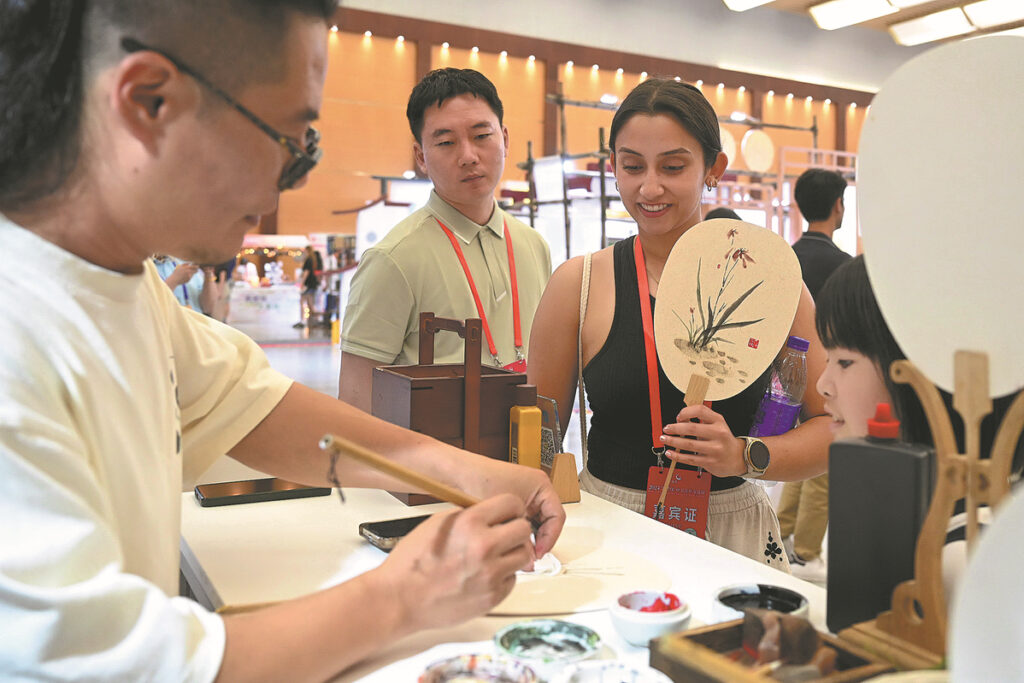
Rekindling friendship
Amy Chastain, a faculty member at the University of Iowa and executive director of Global Ties Iowa, a non-governmental organization that coordinates international people-to-people exchanges, has vast global experience in teaching English as a second language.
She used to live and teach in China, and attended the festival along with students from her university.
“I call it my second home, so I want them to experience places that are dear to me, because I know the people in China are so warm and welcoming,” she said.
She described China as “the safest place” she had ever lived.
“Every year I travel for a conference, and I get in trouble because I forget to remind myself that I am not in China,” Chastain said.
Carla Canales, a US opera singer and arts envoy, told the young audience at a festival dialogue to never underestimate the power of a friendship or a connection.
“Someone sitting next to you might invite you in four years to be part of something. There might be a job opportunity. There might be a new entrepreneurial project,” said Canales, who joined the Joe Biden administration last year as the first senior adviser and envoy for cultural exchange, a new position at the US National Endowment for the Arts.
“Make sure you connect with the people in this room and stay in touch,” she added.
Speaking at the festival’s opening, Lisa Heller, the US consul general in Guangzhou, Guangdong province, shared her early memories of China. She told of when she first came to China as a 21-year-old college graduate.
“My own children grew up here, and I can think of no better place for a young person to get to know about the wider world and its parts, than China,” she said.
She called the decision by participants to take part in the festival “a testament” to their curiosity, which showed their willingness to share their experiences, and their commitment to becoming leaders, and possibly future diplomats.
When underlining the huge importance of the US-China relationship, she said, “From economic cooperation to environmental protection, the work we do is crucial in shaping a peaceful and prosperous future for all.”
“We may have our differences, but we cannot forget those critical human connections,” she said. “Studying in China offers you an unparalleled opportunity to immerse yourself in its rich cultural heritage.”
Many young people at the festival joined in nine panel discussions focusing on themes such as artificial intelligence, climate change, social media, and global governance.
The festival also featured the “Kuliang Chat on Climate Change: China and US in Action” event, which gathered together leading scholars and young people to share views and exchange ideas on protecting the planet.
Anna O’Connor, a University of Iowa undergraduate, said, “I’m really interested in the climate issue and providing climate security and sustainability across the world because obviously that’s very important.”
“I’m also interested in international studies and different cultures and their history … I knew that there might be some differences between the stories (of the people) in the United States and the stories in China.
“Learning everyone’s stories is important and getting (to hear) everyone’s experience is very exciting,” she said.
Christopher Oniya, from Houston, Texas, and a graduate of the University of International Business and Economics in Beijing, enjoyed the inclusive atmosphere at the festival venues. “I’m not asking my Chinese counterparts to change, and they’re not asking me to change,” he said.
Long-term ties
Forty years ago, the US state of Oregon and Fujian province established a sister state relationship.
“The bilateral relations have continued and developed steadily, even during the most difficult time of the COVID pandemic,” Cheryl Myers, deputy secretary of the State of Oregon, said at the opening of the festival.
Myers said Oregonians would like to extend their gratitude for the generous donation in 2020 of 50,000 masks from the Fujian Friendship Association and a local foundation.
She echoed President Xi’s views on the China-US friendship, such as its future depending on youth and its vitality coming from exchanges at subnational level.
A delegation of more than two dozen young people representing the Oregon Rhythmic Gymnastics Team attended the festival.
Myers said the team members’ participation “demonstrates our unwavering commitment to the long-term relationship between Fujian and Oregon and to our shared optimism for the future.”
“We are delighted to invite you to the magnificent state of Oregon to experience the hospitality of its people,” she added.
At the festival’s summary meeting on June 28, US youth representative Harriet Anne Hales Parkinson from Brigham Young University, and Chinese youth representative Ruan Yangyang from the Curtis Institute of Music, read the Kuliang Proposal in English and Chinese respectively.
“We all believe that the story of Kuliang stands as a testimony to China-US friendship”, the proposal stated.
It emphasized that the people of China and the US can overcome their differences and establish deep friendships.
“The youths of both countries are a testament of the development of China-US relations for the past 45 years and they should be the protectors and promoters of healthy and stable China-US relations in the next 45 years,” it said.
During the festival, participants and guests inaugurated the Bond with Kuliang — the China-US Youth Friendship Woods.
Together, they planted 186 friendship trees, including golden laurel and red maple, and signed notes that were attached to the trees.
Some of them invented a new term “Koo”, which combines “Kuliang” with “cool”. One note reads, “KOO tree, may I see you in 5 years again with friends, while enjoying peace, prosperity, safety, and freedom.”
“Thank you Kuliang, we wish for wonderful US-China relations forever,” wrote Norman Charette from James Madison University.
Stephanie Stone and Luo Yu contributed to this story.
(China Daily)


